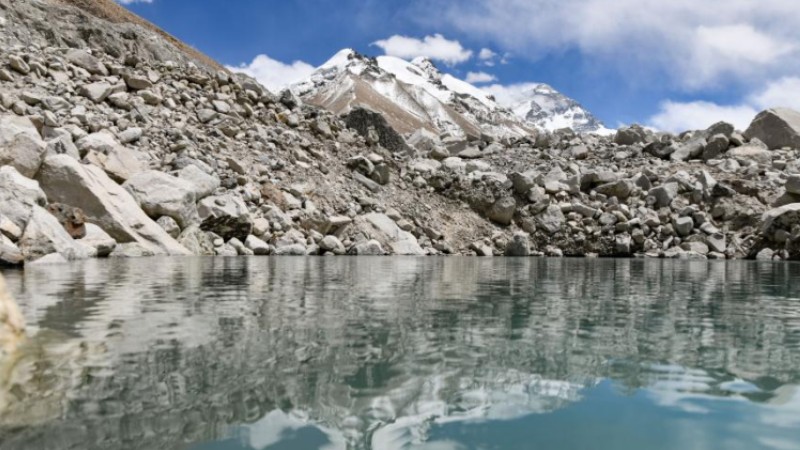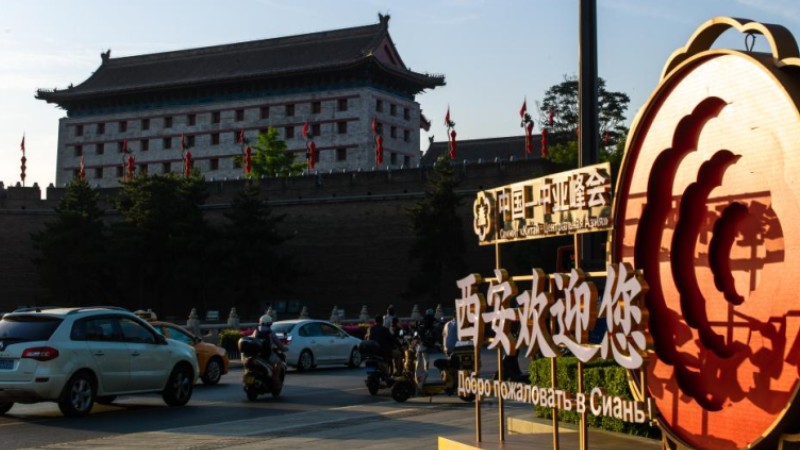Commentary: Japan's nuke wastewater dumping plan perilous, irresponsible
TOKYO, May 19 (Xinhua) -- The Japanese government is digging in its heels. When it comes to sugarcoating its nuclear-contaminated wastewater dump, no chance is too small for Tokyo.
Preliminary farming started last year in seawater at the crippled Fukushima nuclear plant to show water safety. A small group of chefs, restaurateurs and retailers was invited this March for a special tasting event of made-in-Fukushima food. Even the upcoming Group of Seven summit is about to witness Japan wooing its allies to trust ingredients from the prefecture.
The trickery is too crystal clear to miss: The self-serving Japanese government has attempted to shush objections at home and abroad and okay a dumping plan both perilous and irresponsible.
Chief among worries is the contaminated water itself.
After suffering core meltdowns, the nuclear plant has been generating massive amounts of radiation-tainted water. Substances like tritium, a radioactive byproduct of nuclear reactors, are hard to filter. Added to the risks are traces of ruthenium, cobalt, strontium and plutonium isotopes in the wastewater.
In this regard, the Pacific faces immense pollution due to Japan's reckless and shameless actions. Estimates have showed that if contaminated water from Fukushima is released into the ocean, it will only take seven months for it to reach the shores of South Korea's Jeju Island, and to touch as far afield as the U.S. West Coast in several years' time.
Besides, Japan's headstrong decision-makers have proceeded with its unpopular plan without having enough science-based and professional discussions and full communication with the public. Their irresponsible move has undoubtedly sparked a huge outcry both at home and abroad.
In April 2021, the Japanese government announced its controversial plan to release diluted wastewater into the sea, claiming the release is "the most realistic" solution, which is absolutely not. Although neighbouring countries have voiced concern, the government refused to change its mind and said in January that the discharge will start "in the spring or summer."
With the deadline for the dumping plan looming, hundreds of the Japanese people on Tuesday gathered at multiple locations in Tokyo to protest against the government's scheme, demanding immediate suspension.
According to a recent poll, more than 43 percent of people in Japan are against the ocean discharge and over 90 percent of people believe that this move will lead to negative effects. If the Japanese government is unable to convince its own people, how can it expect any trust from the international community?
Moreover, the Japanese government has chosen to take a shortcut that puts economic interest above everything else.
Instead of hammering out a better plan to tackle the issue, the government and Tokyo Electric Power Company (TEPCO), the crippled plant's operator, just claimed the space is running out and they will release more than a million tons of water into the sea, which showed a reckless disregard for the alternative options proposed by the public.
In fact, experts from Japan's Ministry of Economy, Trade and Industry and non-governmental organizations have suggested other disposal options, including vapor release, hydrogen release, geosphere injection or underground burial.
If Tokyo or TEPCO is determined to address the lack of storage, they will certainly find a safe and responsible option. Surprisingly yet sadly, the company said it would be too time-consuming to negotiate with the local government and landowners.
The Pacific Ocean does not belong to Japan. If Tokyo insists on such perilous, toxic nuclear wastewater discharge plan, it will leave another indelible mark of sin on its history due to its irresponsible behavior.
(Zhang Yiyi, Qian Zheng in Tokyo, and Yoo Seungki in Seoul also contributed to the story.)
Photos
Related Stories
- Japan's trade deficit drops by almost 50 pct in April, exports face headwinds from shaky U.S. economy
- Japan posts 3.2-bln-USD trade deficit in April
- Foreign students killed in highway crash in NE Japan city
- Japan to deploy up to 24,000 security personnel for upcoming G7 summit
- 5.1-magnitude quake jolts Japan's Kagoshima prefecture: JMA
Copyright © 2023 People's Daily Online. All Rights Reserved.









